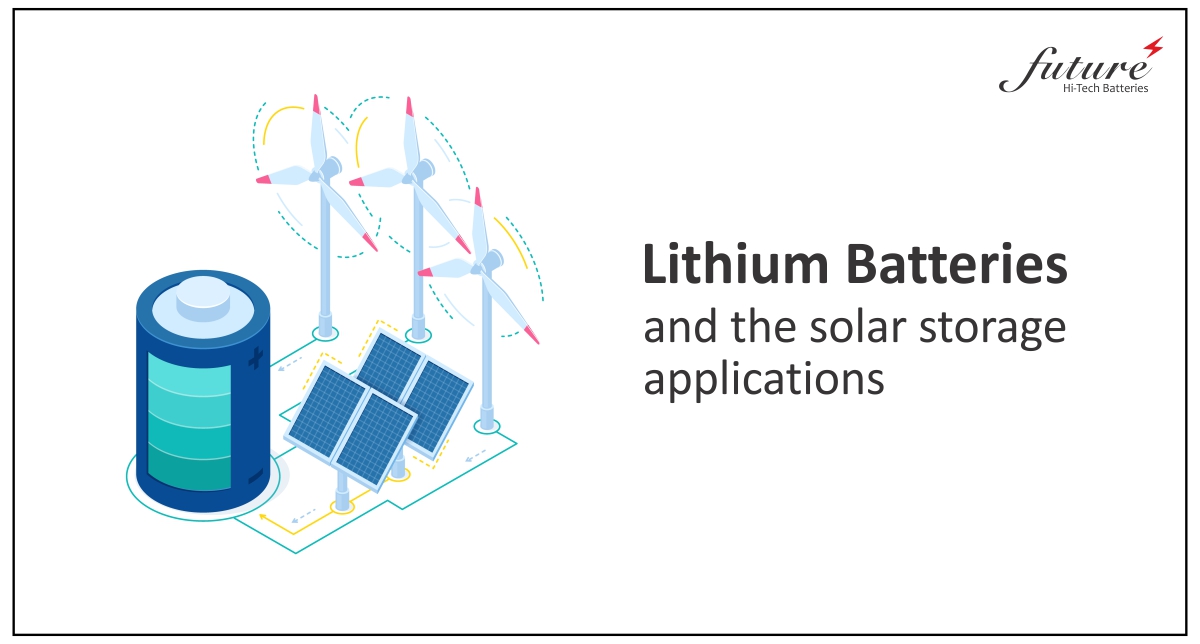Lithium-ion batteries are considered as the powerhouse for energy storage and are known to have multiple applications. The batteries generally consist of four components – the Cathode (determines voltage and capacity of the battery), the Anode (helps electricity flow through an external circuit and stores ions when the battery is charged), the electrolytes serve as the conduit of lithium-ion between anode and cathode, and the separator acts as a physical barrier between the cathode and anode; to maintain the safety of the entire system and keep the current circulating when required.

Lorem ipsum dolor sit amet, nec in adipiscing purus luctus, urna pellentesque fringilla vel, non sed arcu integer, mauris ullamcorper ante ut non torquent.
Lithium-Ion batteries are known to have a wide application, to name a few:
Emergency power backup Or UPS (Uninterruptible Power Supply)
Can be used for emergency power backup, a UPS provides an instant power supply preventing you from traditional power cuts or instability. It’s different from a generator or other emergency power backup.
Electric Mobility (EV segment)
Lithium batteries deliver reliable, stable and long-lasting power in automobiles, offering comfort and safety while exploring remote locations. They have a lifespan of over ten years and lose a negligible amount of power when travelling at a distance. It powers your RV, rickshaw, scooter or car with increased efficiency due to its lightweight property and reduced size; compared to lead-acid batteries.
Marine Equipment
Upgrading your yacht or boat with lithium batteries that offer reliability and longer battery life, as compared to traditional batteries. It also enables your motor to start at a fraction and is way lighter than a lead-acid battery.
Solar/ PV Energy Storage
Solar panels produce low resistance charging. On the other hand, lithium batteries charge quickly, proving the best match for solar panels. Additionally, lithium batteries maximize the potential solar power storage from each day of sunlight.
Surveillance or Alarm Systems in Remote Locations
Monitoring remote perimeter can be challenging as these surveillance systems are not used or maintained regularly. Also, electricity supply can be an obstacle in remote places.
Portable Power Banks
Rechargeable lithium batteries are highly used in phones and the latest lightweight laptops. They are lighter and smaller than lead-acid batteries. Customized lithium battery options allow you to transform your existing technology into a longer-lasting and efficient portable power pack. Li-ion batteries are also economical and durable under challenging conditions.
We see a global adoption and acceptance of this solution especially in solar energy storage, some of the reasons can be sighted as follows:
A. Lightweight and reversible chemical energy: Lithium is a lightweight metal that an electric current can easily pass through. Lithium-ions make a battery rechargeable because their chemical reactions are reversible, allowing them to absorb power and discharge it later.
B. Higher depth of discharge (DoD): The DoD of a battery is the amount of the stored energy being used in the battery. This means you can use more energy stored within a lithium-ion battery without having to charge it frequently.
C. Lifespan: As lithium-ion batteries have a high DoD and don’t need to be charged often, they have a long lifespan. Most lithium-ion solar batteries have a minimum warrantied lifespan of around 10 years. On the other hand, lead-acid batteries, on the other hand, have warrantied lifespan of around 5 years.
D. Higher energy density: The energy density of a battery is the power that the battery can hold compared to the physical size of the battery. Lithium-ion batteries can store more power without consuming much space as a lead-acid battery, which is great for homes where space is restricted.
E. High efficiency: Lithium-ion batteries have higher efficiencies as compared to other kinds of solar batteries in the market. Efficiency refers to the amount of energy that can be consumed from the battery compared to how much energy it took to store it.
F: Less maintenance: Lithium-ion batteries do not require regular maintenance as lead-acid batteries which saves a lot of maintenance costs, which is one of the best advantages.
Compared to lead-acid, lithium batteries offer significant advantages, including improved discharge and charge efficiency, longer life span and the ability to deep cycle while maintaining power. The technology is widely used accordingly. With reference to the cons, there’s always a space for improvement. Understanding the advantages as well as the disadvantages or limitations enables the appropriate use of the Li-ion battery. It is probably worth mentioning that lithium-ion batteries should be stored in a cool place because it slows the aging process of lithium-ion.










Your Comment Please